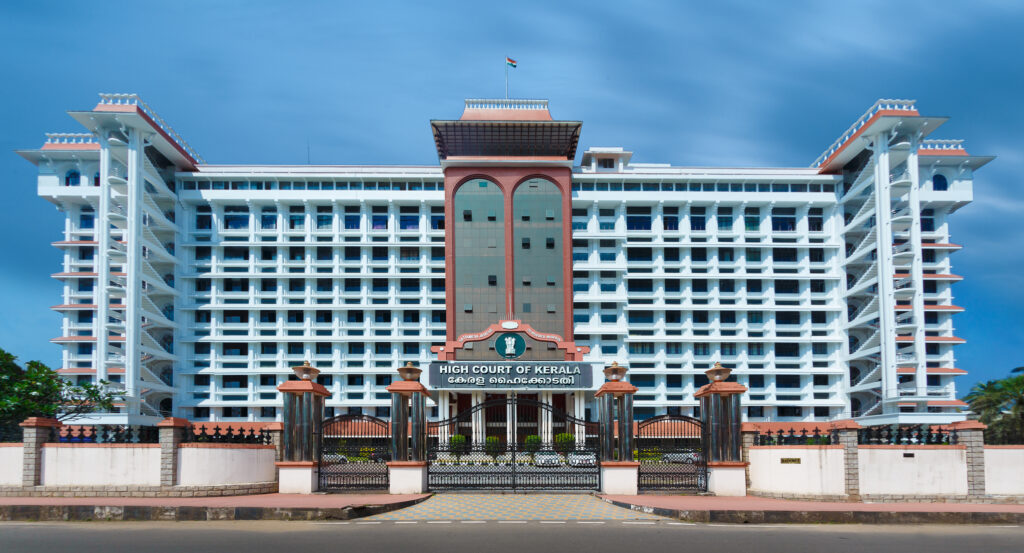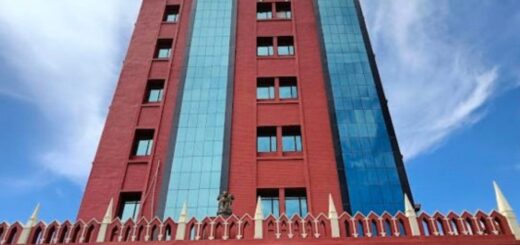Kerala High Court states that grants provided to the assessee for daily expenses are not payment for claimed services or goods provided.

The Kerala High Court has ruled that grants provided to an assessee for daily expenses cannot be considered as payment for services or goods. This decision came while reviewing a Writ Petition against the order from the CGST & Central Excise Department, which stated that the petitioner owed Goods and Services Tax of Rs. 99,05,74,260/- for the period from July 2017 to March 2021, along with interest and a penalty of Rs. 4,95,28,713/-. The Department argued that the petitioner was providing a combined supply of goods and services to schools, thus making them liable for GST.
Justice Gopinath P. noted that Section 7 clearly states that for transactions not listed in Schedule I, consideration is necessary to prove a supply of goods or services. The documents reviewed did not show that the petitioner received any payment from the Government, KIIFB, or the General Education Department for goods or services. Instead, the petitioner only received grants for daily expenses, such as salaries and allowances. Therefore, these payments cannot be classified as consideration for any services or goods provided. The revenue did not demonstrate that the petitioner’s activities fell under Schedule I.
The Petitioner had Advocate V.A. Haritha representing them, while Advocate P.G. Jayashankar represented the Respondent. The Petitioner Firm was set up as a special purpose vehicle following Government guidelines to acquire hardware needed for IT education in Government schools. They do this by issuing competitive tenders and then supplying the hardware to different schools based on the needs and instructions from the General Education Department. This process is managed by the Government through the Kerala Infrastructure Investment Fund Board (KIIFB), which is a statutory body under the Government of Kerala.
The lawyer for the Petitioner argued that Ext.P1 does not show any supply made by the petitioner in exchange for payment. Therefore, it is clear that the petitioner’s actions do not qualify as a supply under Section 7 of the CGST/SGST Acts. They also claimed that if the petitioner’s actions were considered a supply under Section 7, the petitioner should benefit from Ext.P10 notification issued under Section 11 of the CGST Act, 2017. The lawyer pointed out that while the adjudicating authority agrees that goods obtained from Government grants are exempt from GST due to Ext.P10, it also states that the petitioner transferred goods to the General Education Department and that the money received from the KIIFB is not a government grant. The lawyer noted that the petitioner bought the goods after paying GST, and even if the transfer to Government Schools was seen as a supply under Section 7, it would not create a tax burden since the petitioner could claim input tax credit, covering any tax owed on the supply. They argued that many findings in Ext.P1 by the adjudicating authority are inconsistent and cannot be reconciled.
The Court decided that the Petitioner deserves the relief requested. It noted, “Looking at Ext.P1 order, I cannot see a clear and logical approach to the arguments made by the petitioner to the adjudicating authority. The Senior Counsel for the petitioner is correct in saying that there are conflicting findings in Ext.P1.” The Court highlighted multiple contradictions in the Ext.P1 order. It stated that funds given for daily expenses should not be considered as payment for services or goods provided. “The adjudicating authority believes that because the goods were bought using KIIFB funds, they cannot be classified as a grant under Ext.P10 notification. This perspective seems narrow given the situation,” the Court remarked. Therefore, the Court annulled Ext.P1 and ordered a new review of the matter. The Petition was granted.
Cause Title: Kerala Infrastructure and Technology for Education vs. Union of India (2024:KER:88020)
Appearances:
Petitioner: Advocate V.A. Haritha, Advocate Midhuna Bhaskar
Respondent: Advocate P.G. Jayashankar








